
16.7 kilometers south of Lachin, Armenian-controlled Azerbaijan
© Onnik Krikorian for IWPR
Expectations of ending the long-running conflict between Armenia and Azerbaijan over the disputed territory of Nagorno Karabakh are high ahead of a meeting between the two presidents hosted by Russian President Dimitry Medvedev in Kazan on 25 June. The war fought in the early 1990s ended in a ceasefire agreement signed in May 1994. Over 25,000 died and a million forced to flee from their homes. Since then, according to The Economist, around 3,000 have died in cross-border skirmishes leading many analysts to argue that the conflict is anything but frozen. The International Crisis Group, for example, warned of the danger of an 'accidental war' earlier this year.
According to news reports and official statements, the hope is that Azerbaijani president, Ilham Aliyev, and his Armenian counterpart, Serge Sargsyan, will finalize and sign the basic principles that will form the basis for a final peace deal when they meet in Russia. Such hopes follow what many consider to be an unprecedented joint statement from the U.S., Russian and French presidents, representing the three countries tasked with mediating a peace deal under the auspices of the OSCE Minsk Group, at the G8 Summit in Deauville, France, last month.
We, the Presidents of the OSCE Minsk Group's Co-Chair countries -- France, the Russian Federation, and the United States of America -- are convinced the time has arrived for all the sides to the Nagorno-Karabakh conflict to take a decisive step towards a peaceful settlement.
We reiterate that only a negotiated settlement can lead to peace, stability, and reconciliation, opening opportunities for regional development and cooperation. The use of force created the current situation of confrontation and instability. Its use again would only bring more suffering and devastation, and would be condemned by the international community. We strongly urge the leaders of the sides to prepare their populations for peace, not war.
[...]
We therefore call upon the Presidents of Armenia and Azerbaijan to demonstrate their political will by finalizing the Basic Principles during their upcoming summit in June. Further delay would only call into question the commitment of the sides to reach an agreement. Once an agreement has been reached, we stand ready to witness the formal acceptance of these Principles, to assist in the drafting of the peace agreement, and then to support its implementation with our international partners.
There are reportedly still some issues to resolve, but press reports indicate that the basic principles are not too dissimilar from the 1994 Bishkek Protocol signed just a few days before the ceasefire agreement came into effect. In particular, a peace deal would see the return of seven Armenian-controlled regions outside of Nagorno Karabakh proper as also demanded by UN Security Council Resolutions 822, 853, 874 and 884, an interim status for the disputed territory as well as the return of refugees and IDPs to their homes. What seems to have prevented an agreement to date, however, has been the timescale for such a peace plan and the mechanisms for determining Karabakh's status.
In particular, Armenia would prefer to return the Azerbaijani regions of Lachin and Kelbajar only after final status has been determined while Azerbaijan wants them beforehand. Meanwhile, with Armenia demanding nothing less than full independence for Karabakh, Azerbaijan is more inclined towards considering a 'high degree of autonomy' within its territory in much the same way as Tatarstan functions inside the Russian Federation. Regardless, whatever its status, there is also the issue of how wide a strategic land corridor connecting Armenia and Karabakh through Lachin would be in addition to the makeup of peacekeeping forces and the nature of international security guarantees.
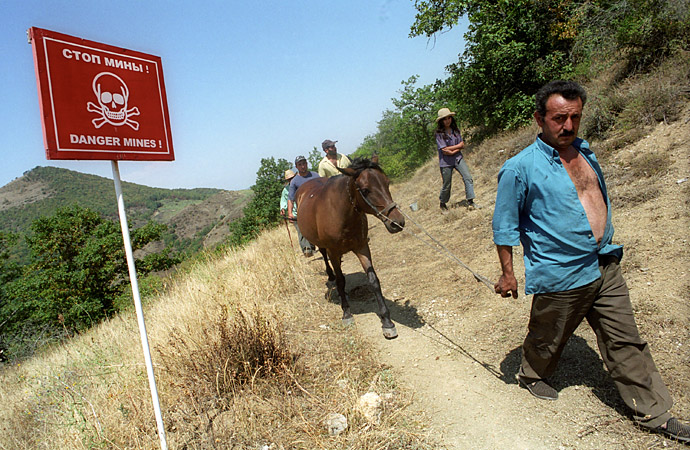
Suarassy, Armenian-controlled Azerbaijan © Onnik Krikorian for IWPR
Nationalists in both countries will undoubtedly oppose such a peace plan, with some Armenians objecting to the return of any Azerbaijani territory outside Karabakh and many Azeris unwilling to risk the chance that the basic principles could pave the way for full independence and the loss of key cultural sites such as Shusha, a formerly majority Azerbaijani town.
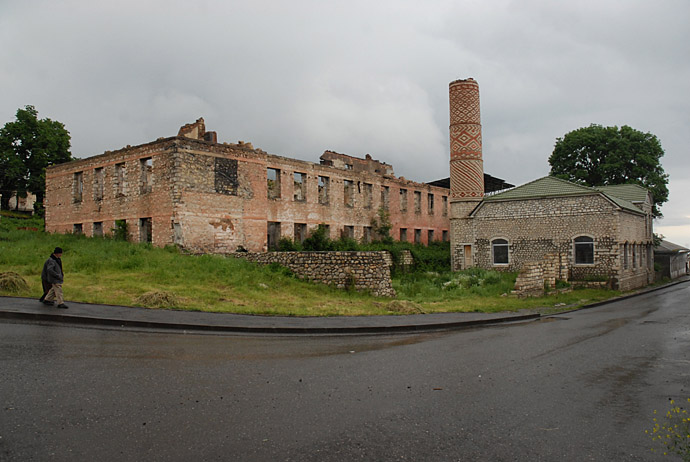
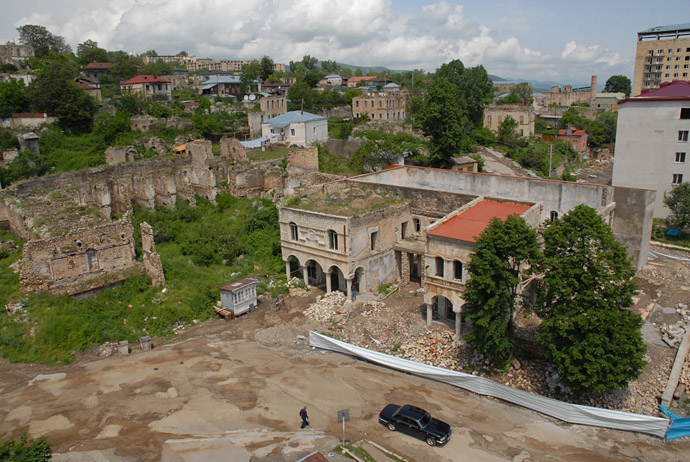
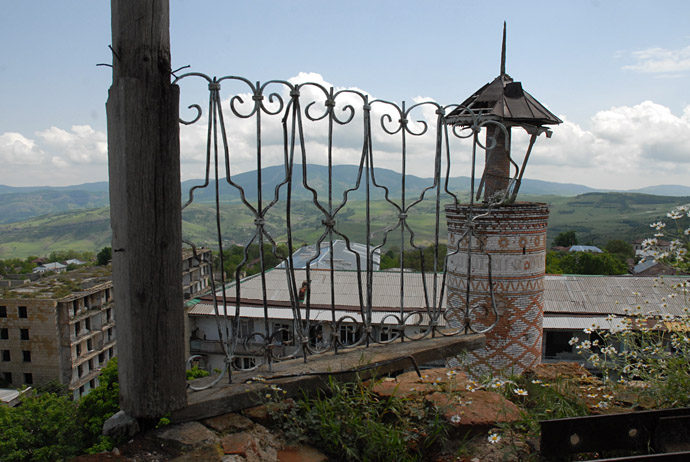
Shusha, Nagorno Karabakh © Onnik Krikorian for The National
Some analysts also remain skeptical, with Yerevan-based Richard Giragosian telling the New York Times that the expected initial outcome of the Kazan meeting was to merely sign a document renouncing the use of force to resolve the conflict. "The two sides are simply too far apart, and there's no political will," he was quoted as saying. Similarly, some news reports quoting Azerbaijani officials as saying that they do not believe there will be a breakthrough at the Kazan talks.
Azerbaijan does not want to wage war over the Armenian-backed breakaway territory of Nagorno-Karabakh, yet it sees no chance of a breakthrough in talks later this month, its deputy foreign minister said.
[...]
Azimov said he was not optimistic for a breakthrough at the meeting of Aliyev and Armenian President Serzh Sarksyan in Kazan. Russian President Dmitry Medvedev will mediate.
"I do not have an optimistic view on what may happen in Kazan. I do not expect an agreement on basic principles in Kazan but I expect some more clarity on the most critical issues," Azimov said. He did not elaborate.

Foreign Minister Eduard Nalbandian, Yerevan, Republic of Armenia
© Onnik Krikorian for The Wall Street Journal
Even so, Armenian Foreign Ministry Spokesperson Tigran Balayan late last night tweeted that the sides were moving closer. Later, the same news was reported in the media.
Armenia and Azerbaijan reported significant progress towards the resolution of the Nagorno-Karabakh conflict following a meeting of their foreign ministers held in Moscow on Saturday.
The meeting was hosted and mediated by Russia's Foreign Minister Sergei Lavrov in preparation for the upcoming Armenian-Azerbaijan summit which international mediators hope will result in a framework peace agreement on Karabakh.
The Armenian Foreign Ministry said Foreign Ministers Edward Nalbandian and Elmar Mammadyarov narrowed their governments' differences on "a number of key issues of the basic principles of resolving the Nagorno-Karabakh conflict." "That draft document will be discussed at the trilateral summit to be held at the end of June," the ministry said in a statement.
For those following the Karabakh negotiations for the past 17 years, however, there seems no plausible reason not to agree and sign the basic principles later this month. Thomas de Waal, Senior Associate for Russia and Eurasia at the Carnegie Endowment and author of Black Garden: Armenia and Azerbaijan through Peace and War who recently made an impassioned plea for a third narrative of peace, puts it more bluntly.
[...] it comes down to political will. Are the Armenian and Azerbaijani leaders merely using the endlessly elusive Karabakh peace process as a device to keep the international community sweet and to demand loyalty from their populations, while never seriously wishing to sign a peace? Or are they genuinely committed to a peace agreement which would begin the long-term transformation of their region, but trapped by their own national discourse and political rhetoric and afraid to move forward? Or a bit of both?
This is why I welcome the line in the Deauville document which says, "Further delay would only call into question the commitment of the sides to reach an agreement." Or to put it another way, "We now have a workable document. Prove to us you are serious and sign it."
[...]
[...] as the Kazan meeting approaches, the stakes are raised for both peace and war in the Caucasus.
Onnik Krikorian is a British journalist and photojournalist based in Yerevan, Armenia, and has been visiting and covering the Nagorno Karabakh conflict since 1994. He has also fixed for TV reports on the Nagorno Karabakh conflict for Al Jazeera English and the BBC. He can be contacted via his personal project on Armenia-Azerbaijan relations here.

Shusha, Nagorno Karabakh © Onnik Krikorian for The National
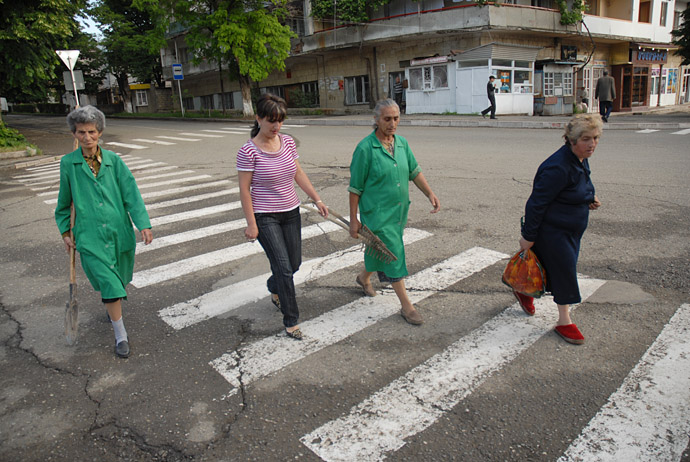

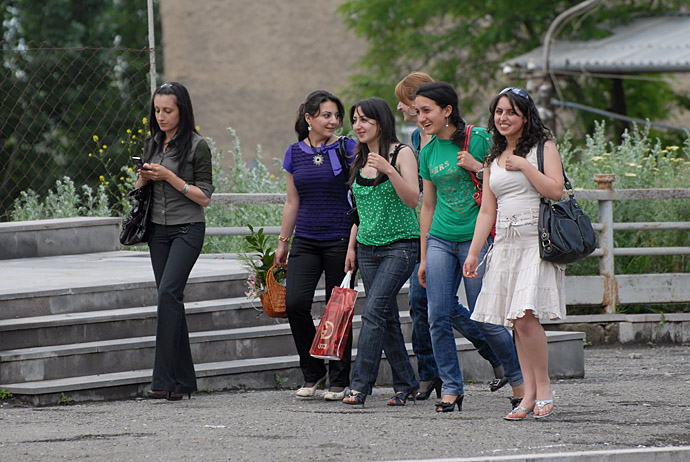

Stepanakert, Nagorno Karabakh © Onnik Krikorian for The National

What do you think?